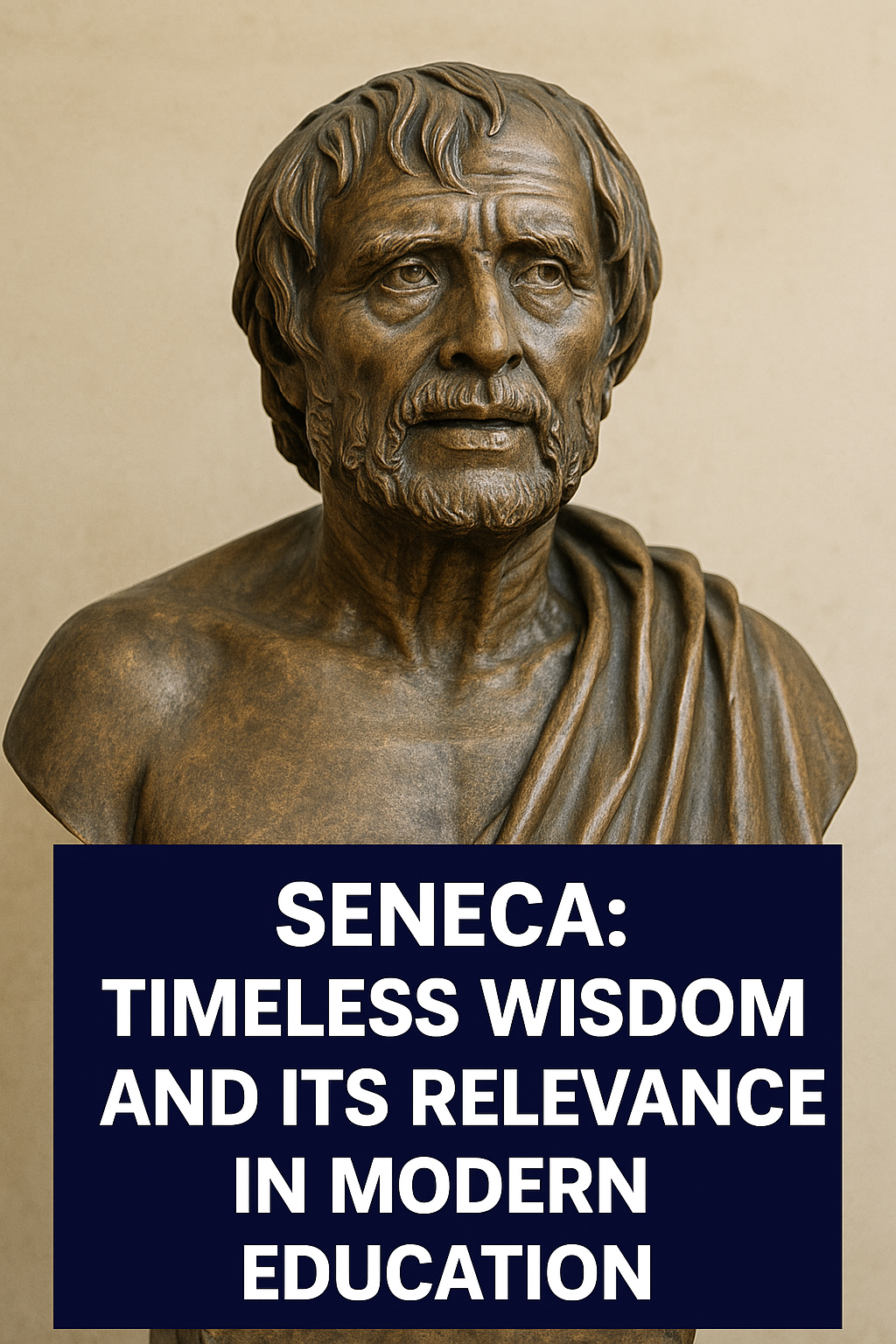The name Seneca resonates not only in philosophy but also in modern-day education and personal growth. Lucius Annaeus Seneca, a Roman Stoic philosopher, playwright, and statesman, has left a lasting impact on the world with his writings on morality, self-discipline, and resilience. Today, educators and students alike draw valuable insights from his teachings to foster better learning and character development.
Who Was Seneca? A Brief Historical Background
Seneca was born around 4 BCE in Cordoba, Spain, and later moved to Rome, where he rose to prominence as a tutor and advisor to Emperor Nero. Despite political turbulence, his works remained focused on Stoic philosophy, emphasising logic, self-control, and ethical living. His most well-known texts include “Letters to Lucilius,” “On the Shortness of Life,” and “On Anger.”
Seneca’s Major Works and Philosophical Beliefs
Seneca’s writings primarily revolve around enduring hardships with virtue and emotional resilience. He advocated for rational thinking, intentional living, and detachment from materialism. These core Stoic beliefs have influenced various educational models that promote mental clarity, purpose-driven learning, and emotional intelligence.
Stoicism in Education and Personal Development
The Stoic principles that Seneca promoted—such as reflection, perseverance, and ethical behaviour—align well with today’s educational goals. Institutions now incorporate mindfulness, resilience training, and critical thinking into their curricula, much of which reflects Seneca’s philosophical foundation.

Why Seneca Matters in Today’s Academic World
Seneca’s relevance persists in academic discourse because of his focus on wisdom, introspection, and human behaviour. His work serves as a valuable resource for students and scholars in philosophy, literature, psychology, and leadership studies. In an era of information overload, Seneca’s clarity of thought and emphasis on essentials are more crucial than ever.
Seneca’s Influence on Critical Thinking and Research
Modern research emphasises analytical reasoning, ethical frameworks, and lifelong learning—all concepts mirrored in Seneca’s writings. His approach encourages students to explore deeper questions, reflect on their motivations, and contribute thoughtfully to their fields of study.
Applying Seneca’s Teachings in Modern Academia
Educators can utilise Seneca's philosophies to foster a culture of self-discipline, ethical conduct, and intellectual curiosity. His teachings remind students that the pursuit of knowledge is not just academic but also moral. Integrating his wisdom into classrooms or thesis topics can cultivate more grounded and reflective scholars.
Dissertation vs Thesis – Research Prospect Canada
For students in Canada navigating academic milestones, understanding the difference between a dissertation vs thesis is crucial. A thesis typically refers to research conducted at the master’s level, presenting original arguments based on existing data. A dissertation, on the other hand, is a more comprehensive study at the doctoral level, involving in-depth original research and theoretical contribution. Research Prospect Canada offers expert support for both, guiding students through topic selection, proposal writing, and final submission. Whether you're crafting a master's thesis or a PhD dissertation, their academic services ensure quality, originality, and adherence to Canadian university standards.
Conclusion
Seneca’s timeless wisdom transcends eras, providing philosophical tools to navigate both life and learning. By adopting his Stoic principles, students and educators can enrich the academic experience, fostering not just intellectual success but personal growth. Combined with expert academic support like that offered by Research Prospect Canada, learners can approach their educational journey with clarity, focus, and purpose.
